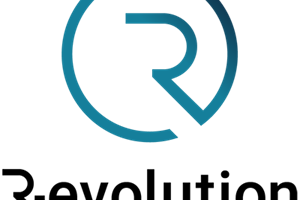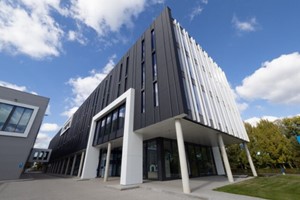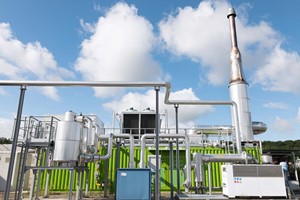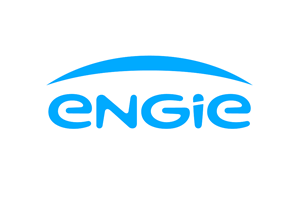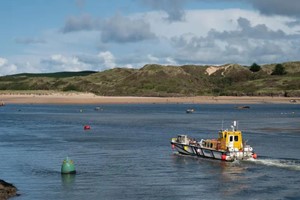R-evolution, the sustainable innovation and green-tech investment subsidiary of Hexagon AB is launching a desalination initiative to address one of humanity's biggest challenges: freshwater scarcity. R-evolution will apply Hexagon’s technology to offer digital twin solutions that enable operational efficiency, replicability and scalability for desalination plants worldwide.
The initiative is ignited with a strategic partnership with Desolenator, a Dutch start-up pioneering the world’s first circular solar thermal desalination system. R-evolution will provide the digital thread for monitoring and optimising Desolenator facilities with efficient and sustainable practices to advance desalination operations in real time.
During COP 28, Desolenator and R-evolution will showcase the partnership's end-to-end solutions at the solar thermal desalination plant in Al Ain, UAE, 150 km south of Dubai. The approach includes net-zero water for irrigation, zero harmful chemicals and integrated greenhouse cooling. The brackish water is converted into clean water for a levelised cost of water under 1 dollar per 1000 litres, used to grow tomatoes and strawberries in the desert.
R-evolution’s desalination digital twin represents three main applications:
Build – Time-lapse and AI monitoring with Hexagon’s OxBlue camera to increase visibility of the plant construction efficiency.
Operate – Mobile asset performance management with Hexagon’s RevX solution to speed up reaction with actionable insights and work order management.
Optimise – 3D digital twin with Hexagon’s Leica BLK2GO reality capture sensor to visualise workflows and optimise operations and maintenance.
“The ability to solve water challenges will define the future for many regions on our planet and new innovative partnerships with cutting-edge technologies are required,” said Erik Josefsson, CEO, R-evolution, powered by Hexagon. “By combining reality capture solutions and asset performance management software, our collaborative project with Desolenator will yield ground-breaking results for clean water access across the globe.”
Edited by Yehya Aoun




